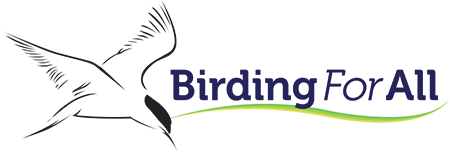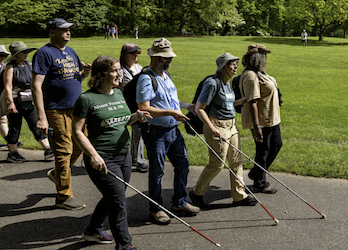What is the Blind Birder Bird-a-Thon?
A Bird-a-Thon is a birding event during which birders try to see or hear as many bird species as possible during a set period of time, in this case, a 24-hour period within two days in May.
The goal of the 2nd Annual Global Blind Birder Bird-a-Thon is to encourage blind and partially sighted birders of any age, experience, or location to head outdoors, tune in, and celebrate the sounds and songs that make birding such a powerful practice of connection.
Birders can identify species by sound or whatever sight is available to them, solo, in a group, or as part of a team, from any location in the world.
When and where?
Dates: Sunday and Monday, May 3–4, 2026
Timing: 12:01 a.m. to midnight local time either day
Participants may choose one of the two days that best fits their schedule and transportation options, and bird for at least two hours – all at once or spread throughout the day. You can bird in your neighbourhood, backyard, local park, favourite trail, or anywhere you find birds.
These dates coincide with spring migration and peak bird song in many regions of the Northern Hemisphere, a perfect moment to listen for your avian neighbours and build birding community.
Who can participate?
Anyone who is blind or has low vision is warmly invited to take part. Birders may participate individually, in groups, or as a team, and may choose to bird with or without sighted volunteers.
All are welcome, from experienced birders to beginners just discovering their first birdsong.
How does it work?
Participants count any bird they hear or see during their 24-hour period, which will be reported to your country’s species compiler. You may use tools such as the Merlin Bird ID app or recording devices to assist in identification. If you bird with a sighted partner, birds they identify can be counted if you also hear or see them yourself.
There is no cost to participate – this is about awareness and community building!
All participants must follow the Birding Code of Ethics, which prioritises the welfare of birds and respect for people, property, and place.
See full details HERE

